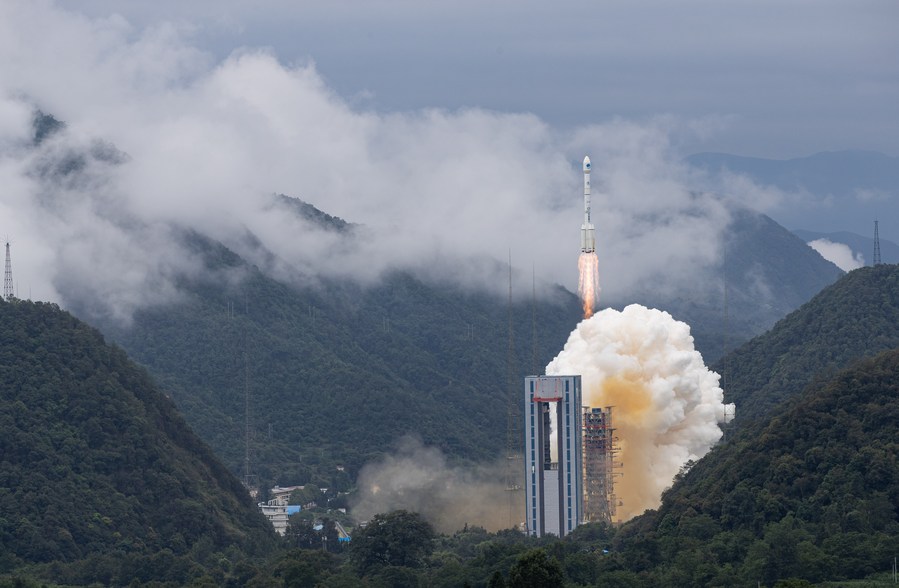China's last BDS satellite enters long-term operation mode
The newly-launched last satellite of China's BeiDou Navigation Satellite System (BDS) successfully entered the long-term operation mode on July 1, announced the Xi'an Satellite Control Center.
The newly-launched last satellite of China's BeiDou Navigation Satellite System (BDS) successfully entered the long-term operation mode on July 1, announced the Xi'an Satellite Control Center.

A carrier rocket carrying the last satellite of the BeiDou Navigation Satellite System (BDS) blasts off from the Xichang Satellite Launch Center in southwest China's Sichuan province, June 23, 2020. [Photo/Xinhua]
It marked that all 30 satellites of the BDS-3 system have been operating in the long-term mode, a major step forward for BDS to provide full services to the world, said the center.
The last satellite of the BDS was launched on June 23. After flying for nearly eight days, it successfully entered the final orbit, which is 36,000 km above Earth, on June 30.
The center is now conducting the final tests before the satellite could be connected with the BDS-3 system and provide services.
The BDS-3 system started to offer basic navigation services to countries and regions along the Belt and Road as well as the world in December 2018.
China started to explore the idea of building a navigation satellite system suited to its national conditions in the 1980s, laying down a three-step strategy. The steps led to the construction of BDS-1, BDS-2 and BDS-3, respectively.
Accumulating years of experience in managing the BDS satellites, the center has improved its capacity of detecting and handling satellite faults.
It has also developed a software for automatic remote control to make satellite management more convenient, scientific and efficient.
It has conducted orbit control on multiple BDS-2 satellites to ensure the orbital positions of the BDS-3 satellites, without affecting BDS users.
The BDS system has been widely used in transportation, agriculture, forestry and fishery, hydrological monitoring, weather forecasts, communication time unification, power dispatching, disaster relief and mitigation, public security and other fields.

